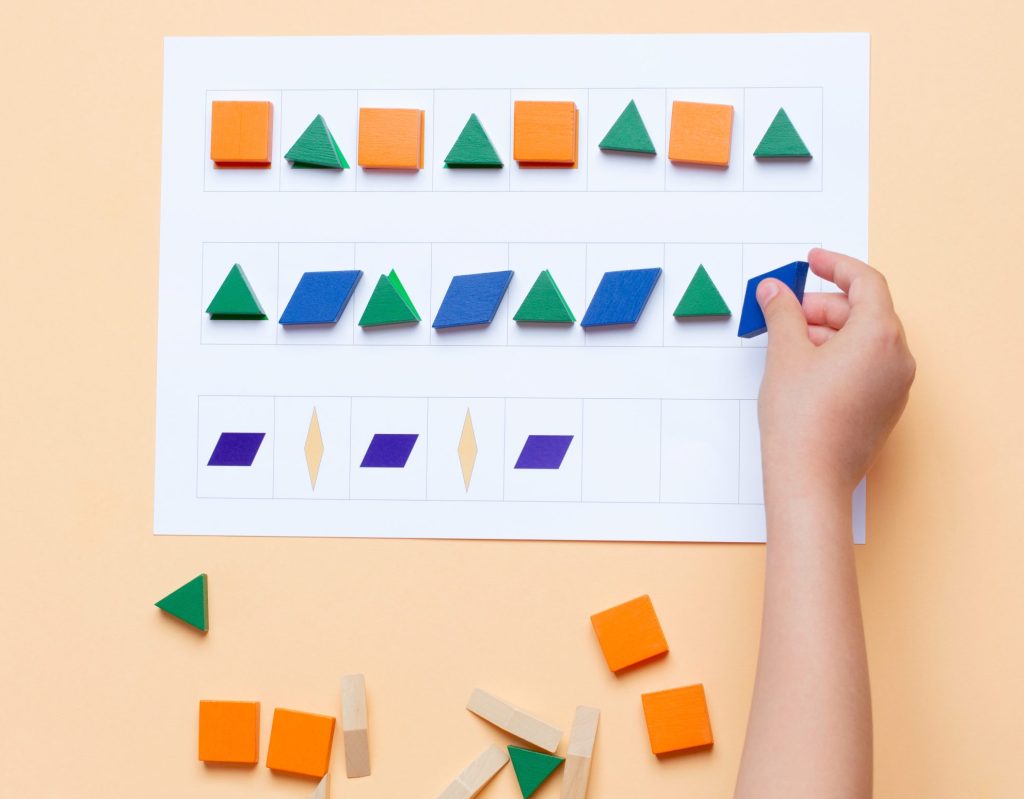Children everywhere, regardless of culture and socioeconomic status, encounter huge numbers of patterns and develop an intuitive, informal understanding of them. Cultures vary in the kinds of pattern experiences they offer, but no culture lacks interesting regularities to explore, whether found in music, art, nature, or games. Making sense of and describing these patterns paves the way for early algebraic reasoning. Children are born with the ability to detect patterns and there is much teachers can do to build on this important skill.
Teaching Young Children Patterns and Algebra
Supporting children’s math development requires a combination of rich math environments, engaging conversations, and opportunities for children to engage in meaningful activities that require problem solving. DREME developed a robust set of professional development resources for teacher educators to support prospective and practicing teachers to promote early math development. We organized these resources into modules, one for each of the following key mathematical topics: Counting, Spatial Relations, Operations, Patterns & Algebra, and Measurement & Data.
This blog provides an overview of resources that prepare teachers to grow children’s knowledge of patterns and algebra. We drew upon research and our own experiences as teacher educators to help teachers design math learning opportunities around patterns and algebra that are intentional, developmentally appropriate, engaging, and playful.
Why and What of Patterns: Why engaging with patterns is crucial for children’s early math learning.
Mathematics of Patterns and Algebra: Several different approaches to explaining the important math underlying patterns and algebraic thinking.
Development of Children’s Thinking on Patterns and Algebra: Videos of children practicing math, activities for teachers, and readings that explore how children develop an understanding of patterns and algebra.
Assessing Patterns and Algebra: Materials to explain and illustrate the importance of formative assessments to identify what children know about patterns and algebra.
Supporting Classroom Practice: Ideas to help teachers develop classroom practice that engages young children in patterns and algebraic thinking.
Vignettes: Fictionalized but very real examples about what it’s like to teach and learn about patterns and algebra.
Getting Started: Teacher educators can use these resources flexibly, with varied settings, amounts of time, and participants. We present a variety of ways to get started with these resources.
Resources Created for and by Teacher Educators
The DREME Teacher Educator website houses a trove of free early math teaching and learning resources, including videos, hands-on activities, handouts, and articles. The materials are flexible and easy to use in a variety of settings, from a professional development workshop to an entire preservice course in teaching math to young children.
The website is organized into modules addressing early math content areas, plus an Overview section:
We recognize that children come to school with diverse experiences and math-related knowledge that teachers can harness. Our materials focus on developing the ability of teachers to promote deep mathematical understanding in all children.



